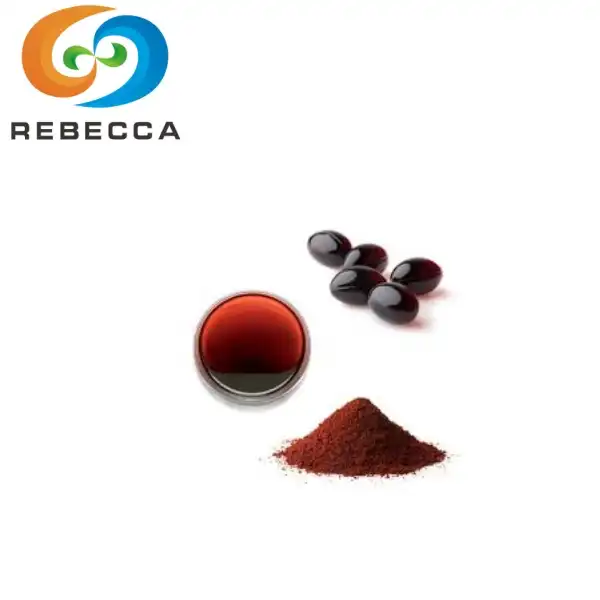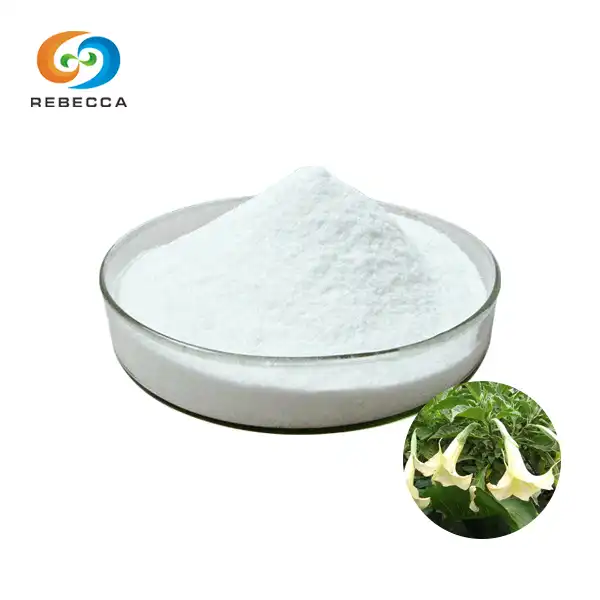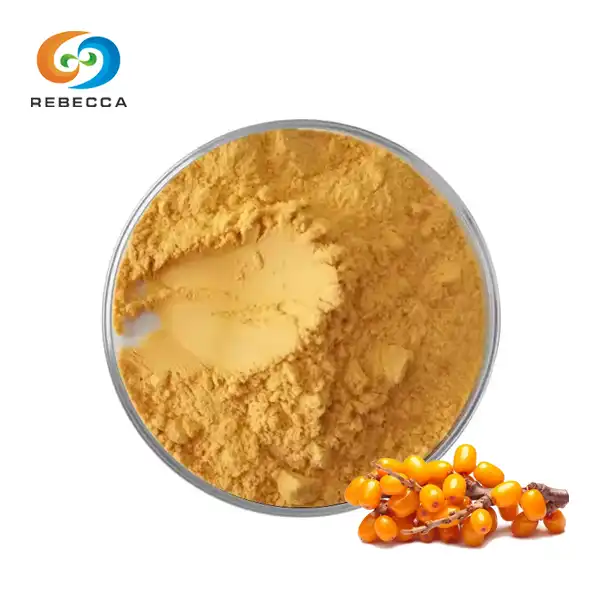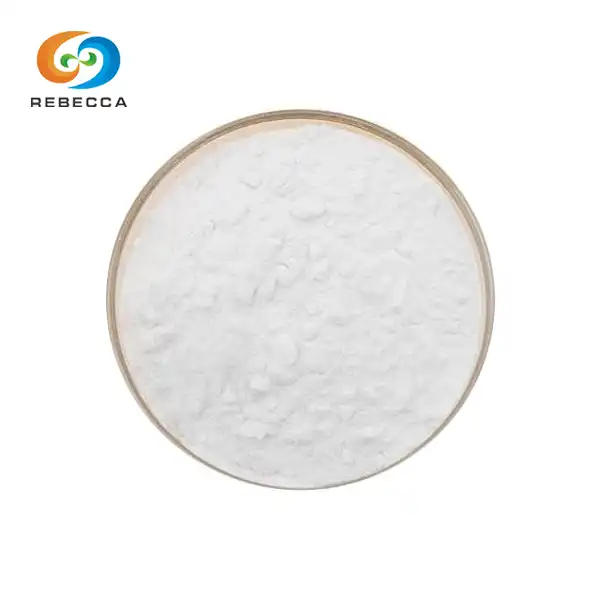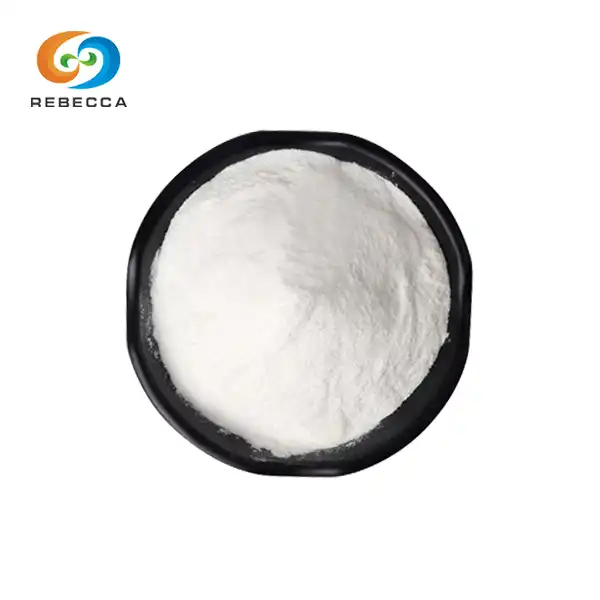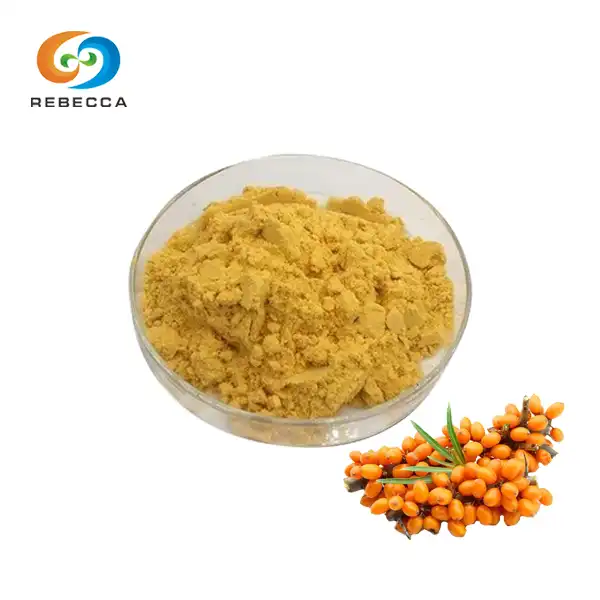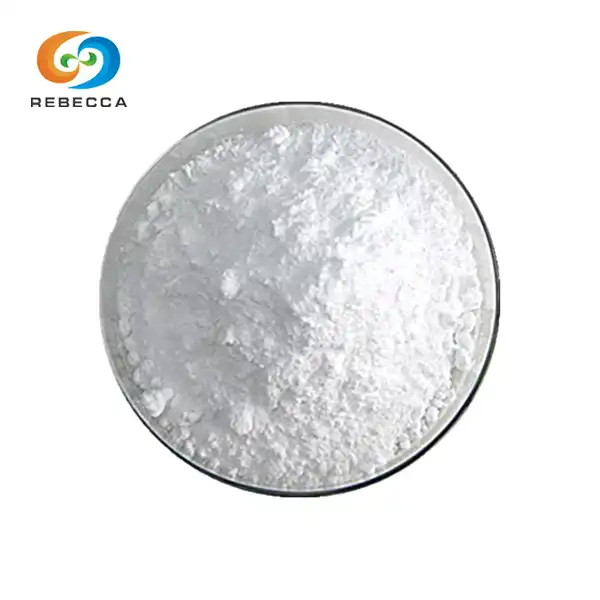Quercetin And Pterostilbene Side Effects
In the world of natural supplements, quercetin powder and pterostilbene have gained significant attention for their potential health benefits. These compounds are powerful antioxidants found in various plants and have been extensively studied for their therapeutic properties. Quercetin, a flavonoid widely distributed in fruits, vegetables, and herbs, is known for its anti-inflammatory and immune-supporting characteristics. Pterostilbene, a lesser-known but equally intriguing compound, is a derivative of resveratrol and shares similar molecular structures.
Quercetin powder is particularly interesting due to its versatility and concentration. Derived from natural sources like onions, apples, and green tea, this supplement has attracted researchers and health enthusiasts alike. Pterostilbene, primarily found in blueberries and grapes, is structurally similar to resveratrol but boasts improved bioavailability and potentially more potent effects.
Both compounds have been studied for their potential roles in supporting cardiovascular health, managing inflammation, and providing antioxidant protection. However, like any supplement, understanding their potential side effects is crucial for safe and responsible use.
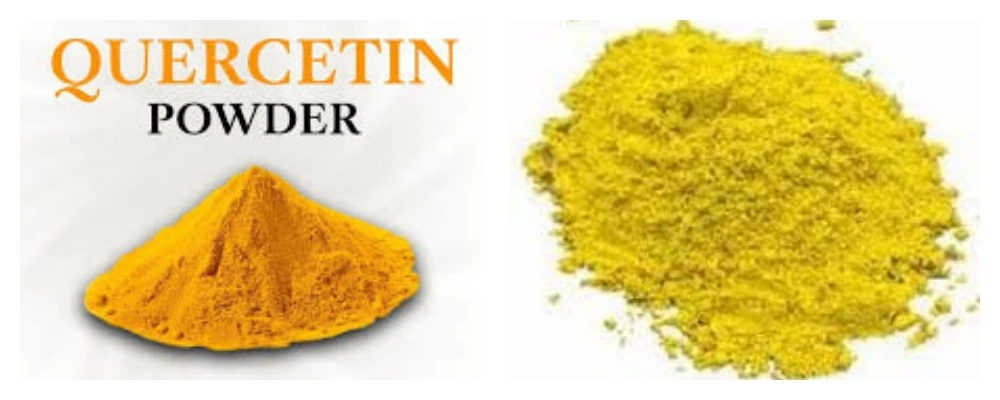
Potential Side Effects of Quercetin Supplements
While quercetin powder and pterostilbene are generally considered safe for most individuals, it's essential to be aware of potential side effects and interactions. Research suggests that these compounds can cause mild to moderate side effects in some people, depending on dosage, individual health status, and concurrent medications.
Common side effects associated with quercetin supplementation may include:
Gastrointestinal discomfort is the most frequently reported side effect. Some individuals might experience mild symptoms such as stomach upset, nausea, or occasional headaches. These reactions are typically dose-dependent and can often be mitigated by adjusting supplement intake or consuming it with food.
Individuals with pre-existing kidney conditions should exercise caution. While quercetin has shown potential benefits for kidney health, high doses might strain kidney function. People with compromised renal function should consult healthcare professionals before incorporating quercetin powder into their supplement regimen.
Potential interactions with medications represent another critical consideration. Quercetin can interact with blood thinners, potentially affecting their effectiveness. Additionally, it may influence the metabolism of certain drugs processed by the liver, which could alter their concentration in the bloodstream.
Rare but more serious side effects might include allergic reactions, particularly in individuals sensitive to plant-based compounds. Symptoms could range from mild skin rashes to more severe respiratory complications. Individuals with known plant allergies should proceed with caution and seek medical advice before starting supplementation.
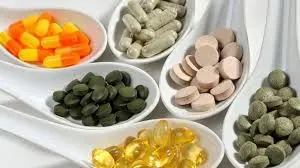
How to Use Quercetin and Pterostilbene Safely?
Ensuring the safe consumption of quercetin powder and pterostilbene extract requires a comprehensive and mindful approach. While these supplements offer promising health benefits, responsible usage is paramount to minimizing potential risks and maximizing potential advantages.
Consultation with healthcare professionals should be the first step in incorporating these supplements into your wellness routine. A thorough medical evaluation can help determine appropriate dosages, identify potential interactions with existing medications, and assess individual risk factors.
Dosage recommendations vary based on individual health status, age, and specific health goals. Most research suggests that quercetin doses between 500-1000 mg per day are generally safe for healthy adults. However, start with lower doses and gradually increase while monitoring your body's response.
Quality matters significantly when selecting quercetin powder or pterostilbene supplements. Choose products from reputable manufacturers that provide third-party testing results and clearly disclose ingredient sourcing. Look for supplements that undergo rigorous quality control processes to ensure purity and potency.
Timing and method of consumption can also impact supplement effectiveness and potential side effects. Taking quercetin with meals can help reduce gastrointestinal discomfort. Some individuals find that spreading the daily dosage across multiple times minimizes potential adverse reactions.
Regular monitoring and self-awareness are crucial. Pay attention to how your body responds to the supplements. If you experience persistent side effects or unusual symptoms, discontinue use and consult a healthcare professional immediately.
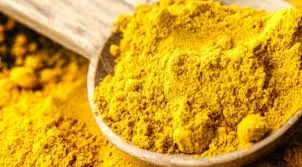
Get More Information
Quercetin and pterostilbene, two compounds found in nature, stand as beacons of potential when it comes to health-supporting properties. Quercetin, a flavonoid abundant in fruits, vegetables, and grains such as apples, onions, and broccoli, has been the subject of extensive research. It exhibits powerful antioxidant capabilities, neutralizing harmful free radicals that can otherwise cause oxidative stress in the body, which is linked to various chronic diseases like cancer, heart disease, and neurodegenerative disorders. Pterostilbene, a natural phenol closely related to resveratrol and found in blueberries and grapes, also showcases antioxidant and anti-inflammatory properties. Additionally, it may play a role in improving metabolic function and protecting against certain age-related declines.
Despite the numerous benefits these compounds offer, it is of utmost importance to understand their side effects and implement safe usage strategies. Quercetin, when taken in high doses, may potentially interact with certain medications, such as blood thinners. It could enhance the anticoagulant effect, increasing the risk of bleeding. Moreover, in some individuals, it may cause mild gastrointestinal discomfort like nausea or diarrhea. Pterostilbene, although generally well-tolerated, may also have potential side effects. High doses might disrupt the body's normal hormonal balance in some cases, and there could be interactions with medications that affect liver function since the liver is involved in metabolizing pterostilbene.
For further information or inquiries about quercetin powder and supplement safety, please do not hesitate to contact our expert team at information@sxrebecca.com. Our professionals, who are well-versed in the latest research and developments in the field of nutritional supplements, are dedicated to providing comprehensive support and guidance for your health and wellness journey. Whether you have questions about the proper dosage, potential interactions, or the best sources of these beneficial compounds, our team is ready to assist you every step of the way.
References
References Anand David, A. V., et al. (2016). "Quercetin: A Natural Compound for Treatment of Inflammation and Related Diseases." Inflammation & Allergy Drug Targets, 15(3), 210-220.
Kapetanovic, I. M., et al. (2011). "Pharmacokinetics, metabolism, and toxicity of pterostilbene: A review of the literature." Drugs of the Future, 36(7), 525-536.
Li, Y., et al. (2017). "Quercetin: A Comprehensive Review on Pharmacological Mechanisms." Oxidative Medicine and Cellular Longevity, 2017, 9062718.
Sahebkar, A., et al. (2016). "Pterostilbene: A Potent Natural Compound with Therapeutic Potential." Molecules, 21(12), 1658.
Sesso, H. D., et al. (2014). "Dietary Intake of Pterostilbene and Cardiovascular Disease Risk." Journal of Nutrition, 144(9), 1475-1480.
